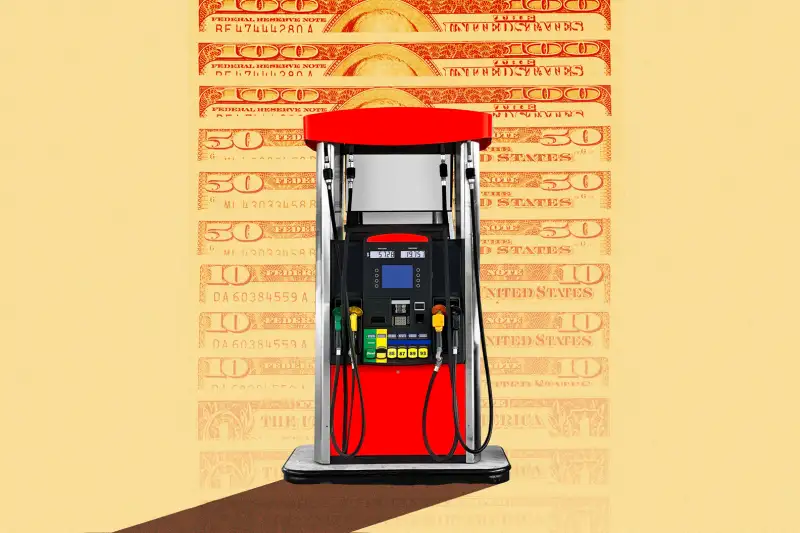Outraged About High Gas Prices? States Are Looking Into Possible Price Gouging

Now that record-high gas prices have hit the U.S., many drivers feel like they're getting ripped off. After all, average gas prices reached $4.33 per gallon as of Friday, an increase of nearly 50 cents in a single week. But are gas stations actually engaging in price gouging?
That's a question federal and state officials are trying to answer. “While consumers can expect gas prices to fluctuate more than usual at this time, any unconsciously high increase could be a sign of price gouging, which is illegal,” Michelle H. Seagull, commissioner of the Connecticut Department of Consumer Protection, said in a news release on Monday.
Attorneys general in other states, including Massachusetts, Nevada and North Carolina, have also said recently they are investigating any suspected instances of price gouging at the pump.
On Tuesday, while President Joe Biden was announcing the U.S. is banning imports of Russian oil, gas and coal due to the war in Ukraine, he also issued a warning to would-be price gougers.
"We understand Putin’s war against the people of Ukraine is causing prices to rise," Biden said. "It’s no excuse to exercise excessive price increases or padding profits or any kind of effort to exploit this situation."
Russia's invasion of Ukraine has upended global markets and caused oil prices to soar. As wholesale oil costs rise, consumer gas prices follow — reaching a new record high this week after the average gallon of gasoline rose 85 cents in a month.
"Russia’s aggression is costing us all, and it’s no time for profiteering or price gouging," Biden said on Tuesday.
Gas prices and price gouging
It's frustrating when it suddenly costs an extra $20 to fill your tank, but that doesn't necessarily mean illegal price gouging is happening.
Price gouging can be hard to define and harder to prosecute. Many state laws on the topic include subjective language, stating that price increases must be "unconscionable," "unjustified," "exorbitant" or "excessive" in order to qualify as illegal gouging.
When a business raises prices for justifiable reasons rather than opportunistic ones, it's generally considered business as usual, not price gouging. Consumer gas prices are largely based on the cost of wholesale crude oil, and global oil prices have been soaring in 2022. So gas stations can point to legitimate reasons why prices at the pump are jumping.
Still, plenty of people are floating accusations of price gouging at the pump on social media. And some of the examples, like gas stations charging in the neighborhood of $9 a gallon in California, sure seem to warrant the public shaming. But it's hard to verify actual instances of illegal price gouging at gas stations.
It's important to note that some price gouging regulations can only be enforced during specific times — typically, they're limited to natural disasters and other emergencies. The press office for the California Attorney General told Money via email that "the state's price gouging law is not triggered unless there is a federal, state or local declaration of emergency." No such declaration has been made over rising gas prices.
Some states, like New Hampshire, Nebraska and Wyoming, have no rules against price gouging whatsoever. There's no federal regulation explicitly prohibiting price gouging, either.
At the end of the day, gas prices are largely driven by market forces. Most gas stations can't get away with charging $5 a gallon when there's a competitor offering $4 gas down the block.
If you suspect a gas station of price gouging, you can file a complaint online or over the phone with the state's attorney general office. Even if the state doesn't specifically outlaw price gouging, the threat of scrutiny from state regulators may cause gas stations to pause before overcharging customers.
More from Money:
What Soaring Gas and Oil Prices Mean for Your Investments
What the Russia Sanctions Could Mean for Inflation in the U.S.Best Cash Back Credit Cards of 2022
